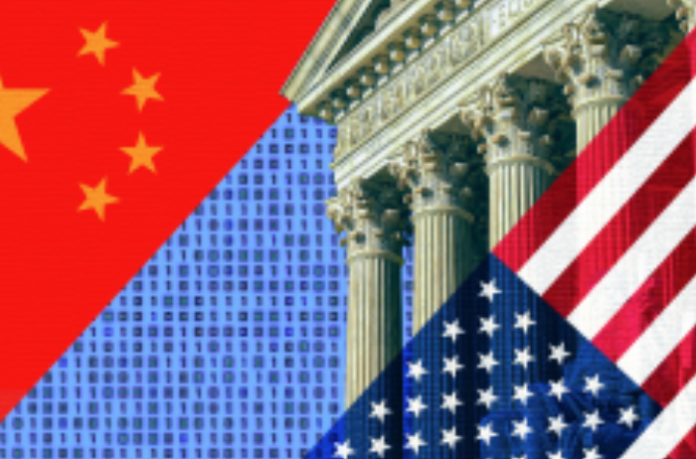These days, it’s rare that Congress, the executive branch and the federal courts speak with a single voice and arrive at the same conclusion. But when it comes to TikTok, there has been no daylight between our three branches of government on the grave national security harms created by what Congress has determined is the Chinese Communist Party’s control over the social media app – and the narrowest possible way to address those harms.
The Supreme Court heard oral arguments today in TikTok v. Garland, and it was clear to me from their questions that the justices recognized the serious national security issue we are facing. I believe the least restrictive solution is for the app’s owners, Beijing-based tech company ByteDance, to divest the app and comply with the act’s requirements.
That’s what’s envisioned by the law I co-wrote, the Protecting Americans from Foreign Adversary Controlled Applications Act, also known as the TikTok Divestiture Law. Last March, I introduced the legislation with Republican and Democratic colleagues, members of the House Select Committee on the Chinese Communist Party.
At every step of the way, lawmakers on both sides of the aisle came together to support this law and consider alternatives. The House Energy and Commerce Committee voted unanimously to bring our bill to the floor. The law passed the full House twice by overwhelming margins before our colleagues in the Senate voted 79-18 to send the bill to President Joe Biden. Biden signed it into law in late April 2024. This was bipartisanship at its finest, and it was built on moves by then-President Donald Trump, who in 2020 had signed executive orders to attempt to address this national security threat.
Last month, the D.C. Circuit Court of Appeals unanimously upheld the law against a challenge by ByteDance. The court acknowledged in its opinion what is abundantly clear to everyone on Capitol Hill and two successive presidential administrations who have investigated this issue for years: “The First Amendment exists to protect free speech in the United States,” the ideologically diverse panel of judges wrote. “Here the Government acted solely to protect that freedom from a foreign adversary nation and to limit that adversary’s ability to gather data on people in the United States.”
To put it simply, Congress has concluded that the company that controls TikTok is controlled by a foreign adversary: the Chinese Communist Party. Chinese law requires ByteDance to hand over the sensitive data of Americans on demand to its intelligence services.
A majority of U.S. teens and 1 in 3 American adults use TikTok, according to a report released last month by the Pew Research Center. This creates immense vulnerabilities, including by exposing so much private data of American citizens – and even their contacts – to an adversarial state. Among other things, this could be used for espionage by the Chinese Communist Party.
ByteDance claims the law is seeking to “ban” the app, which is false. I would know, since I wrote the law. If they sell the app to buyers who are not controlled by a foreign adversary and meet the requirements of the law, TikTok can continue to operate as normal. There are bidders waiting to buy an app that is reportedly used by more than 1 billion people across the world and 170 million Americans.
While we hope this will be resolved by a sale that complies with the law by Jan. 19, if ByteDance were to fully divest itself from TikTok at a later date, any legal restrictions would then be lifted.
Now is the time for ByteDance to feel the heat from its users. If you use TikTok, or one of the many similar social media applications that exist, you can post videos to explain the grave national security risks of China’s communist government controlling this application and our private data. Those who don’t use the app can still explain to friends and family why foreign adversary control of TikTok gravely harms our national security.
The law has been passed, and it’s time for ByteDance to divest. The clock is ticking.
Raja Krishnamoorthi is a U.S. congressman from Illinois and the ranking Democrat on the House Select Committee on the Strategic Competition Between the U.S. and the Chinese Communist Party.






















